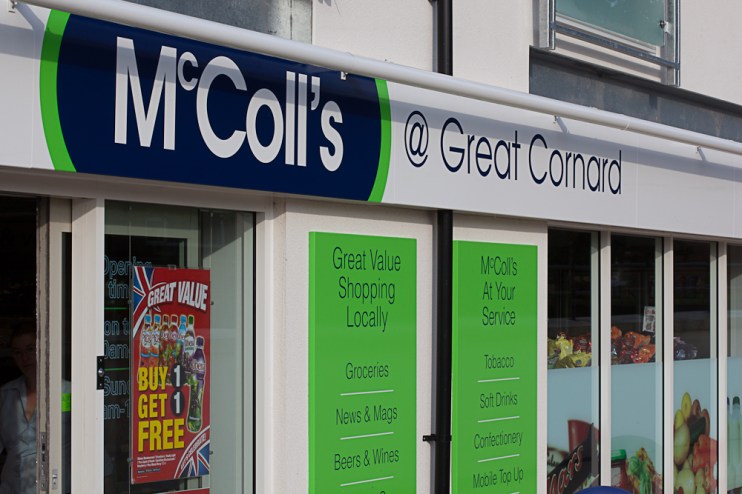Convenience store chain McColl’s swings to loss despite coronavirus spike in demand

Convenience store chain McColl’s swung to a loss in the first half of the year despite a surge in demand during the coronavirus lockdown.
The figures
McColl’s reported a loss before tax of £1.3m in the 26 weeks ended 24 May, down from profit of £200,000 last year.
McColl’s total revenue fell one per cent to £604.8m, down from £611.1m last year, reflecting store closures and lower services revenue due to the temporary withdrawal of scratch cards.
The drop was partially offset by a spike in demand since the coronavirus outbreak in the UK.
Total like-for-like sales grew 8.3 per cent, compared to one per cent growth last year, with sales accelerating in the second quarter at the height of the coronavirus lockdown.
McColl’s reported a gross margin of 24.9, down from 25.4 per cent, as consumers moved away from impulse purchases to lower margin products, multi-buys and value items.
Why it’s interesting
McColl’s implemented social distancing measures, reduced trading hours and removed non-essential items, such as scratch cards, from sale, which impacted revenue during the period.
However the convenience store chain said restrictions on freedom of movement had encouraged shoppers to buy locally. A drop in the frequency of visits was offset by an increase in basket sizes.
McColl’s said it is in a good position to “retain the additional customers drawn to our stores during such difficult circumstances”.
What McColl’s said
McColl’s chief executive Jonathan Miller said: “I have never been prouder of McColl’s and all our colleagues who have been working incredibly hard in such a challenging environment following the Covid-19 outbreak.
“The business has responded quickly to keep the neighbourhood communities we serve supplied with the food, goods and services they need.
“We have seen an extraordinary change since the onset of the crisis. Strong demand, reaching double digit like-for-like sales in recent months, has been accompanied by a significant shift in the pattern of trade.
“Food grocery and alcohol sales have been particularly strong, in line with our longer-term strategy to grow these categories as part of our total sales mix. Meanwhile, customers have been spending less on impulse and buying more multipack products.
“The safety of customers and colleagues remains paramount, and we acted quickly to deploy personal protective equipment (PPE) and the necessary social distancing measures, the costs of which have been partially offset by the business rates saving.”